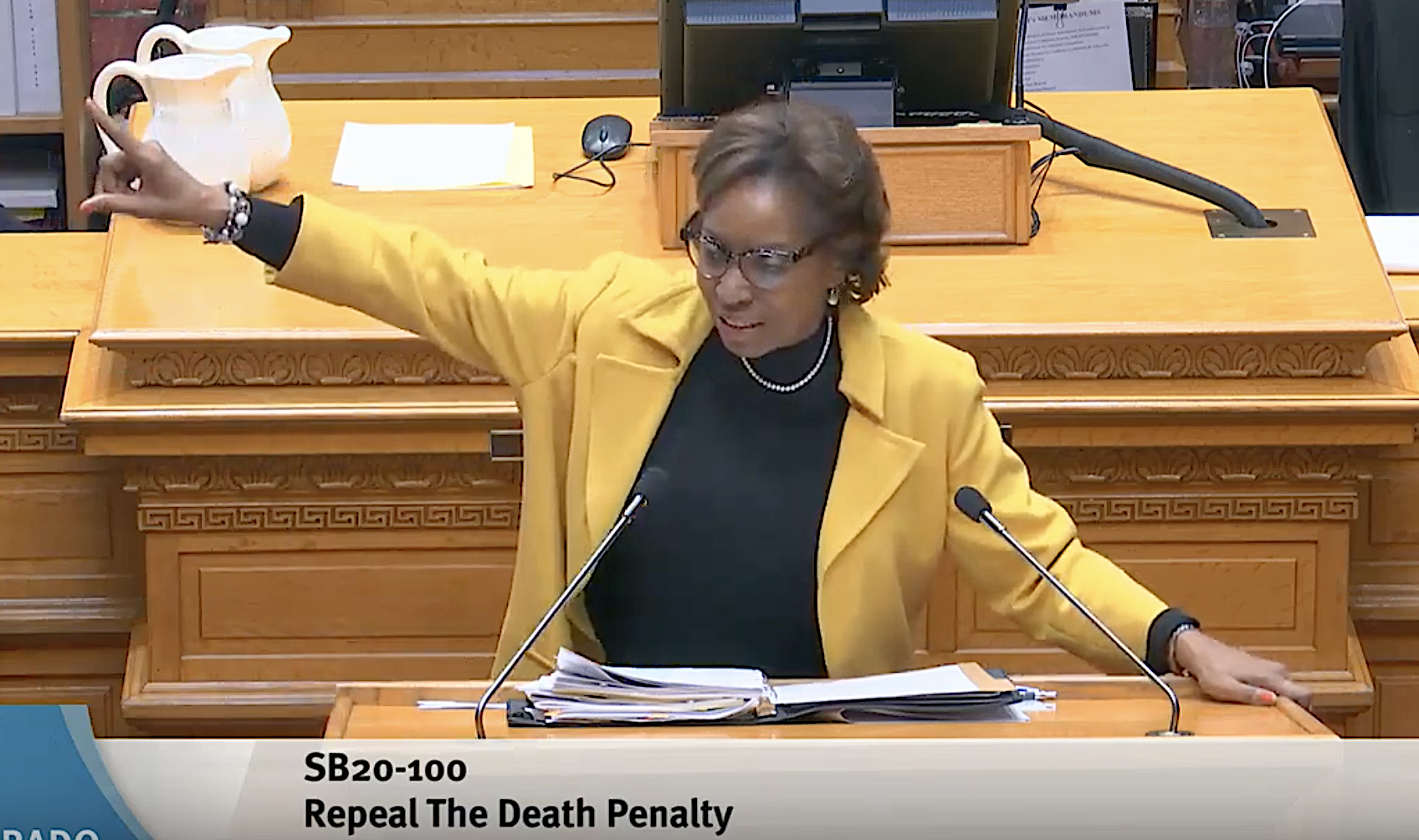COURT CRAWL | High-profile murder convictions get reconsidered, mental health law called into question

Welcome to Court Crawl, Colorado Politics’ roundup of news from the third branch of government. The Court of Appeals had a busy week, from considering the fairness of high-profile murder trials to deciding a multimillion-dollar penalty against a for-profit college must be retried. Plus, one judge called into question the constitutionality of a mental health law in Colorado.
High-profile trials under scrutiny
? The right to a fair trial is foundational to the criminal justice system, and the state’s Court of Appeals decided that a gang member did not receive one in Jefferson County. The court ordered a new trial after the original district court judge combined the proceedings for two defendants implicated in a Lakewood shooting death. The problem was that each man said the other was the killer, and everyone agreed there was only one shooter – but a jury found them both guilty.
? A Court of Appeals panel last week also heard the case of Sir Mario Owens, one of the last three men on Colorado’s death row before the legislature abolished capital punishment last year. In addition to arguing his lawyers were ineffective at his 2007 murder trial, Owens also described the bizarre entanglements of one juror with the prosecution’s witnesses.
? Juror 75, as she was known, had both the victim and multiple witnesses over to her house when they were younger, as they were friends of her son. Although she claimed not to recognize them during the trial, she did encounter one witness at her son’s apartment the day the witness testified, where he hugged her and mentioned he saw her in court.
? “In violation of repeated court instructions, J75 never disclosed these facts during trial, or if she did, the parties were never made aware,” Owens argued to the appellate court in asking for a new trial. Owens did not receive his death sentence for murdering Gregory Vann, the victim in the 2007 trial, but rather for the additional murders of Javad Marshall-Fields and Vivian Wolfe. The mother of Marshall-Fields, Sen. Rhonda Fields, D-Aurora, was present in the appeals court during oral arguments.

For-profit college – or what’s left of it – off the hook for $3 million
? Last August, the attorney general’s office won a $3 million judgment against a for-profit college with campuses in Colorado, after a Denver district court judge found the organization violated the state’s consumer protection law with its deceptive marketing practices. But now, the Court of Appeals says the judge, Ross B.H. Buchanan, wrongly applied a recent change in the law when evaluating the attorney general’s claims. Consequently, the appellate panel ordered a new trial, in which the government will have to prove CollegeAmerica’s alleged actions had a significant impact on the public.
? There are two strange sidebars to the decision: first, it comes mere weeks after CollegeAmerica’s campuses shut down permanently, following a loss of accreditation. Second, the appellate panel’s description of the case inadvertently revealed that Buchanan, who took nearly three years to issue his decision in the admittedly complex matter, was one of the unnamed judges who the Colorado Commission on Judicial Discipline delivered a private sanction to last year.
Update on mass shooting, insurrection cases
? The chief judge of Boulder County, who is presiding over the trial of the man accused of murdering 10 people at a King Soopers store in March, will not release surveillance video publicly until the conclusion of the trial.
? A Colorado man who participated in the Jan. 6 insurrection at the U.S. Capitol has again asked a federal judge in the District of Columbia to consider granting him pretrial release. The judge previously said Jeffrey Sabol of Indian Hills posed a continued danger to the public.

Constitutionality of mental health law
? A Court of Appeals judge believes that a state law governing mental health commitments is unconstitutional. In a dissenting opinion, Judge JoAnn L. Vogt said Colorado’s requirement that someone who is conditionally released from psychiatric care must be re-committed solely if they do not cooperate with an evaluation violates the U.S. Supreme Court’s precedent that the individual be both mentally ill and dangerous.
? “For the sake of preserving the civil rights of an individual to have an opportunity to thrive in a least restrictive environment … I’m skeptical about revocation of conditional release when the deprivation of liberty is not based on the due process of assessing for threat to safety, but rather on a non-criminal failure to comply with an administrative requirement.” –Vincent Atchity, president and CEO of Mental Health Colorado
Miscellaneous decisions
? A Garfield County woman said repeatedly during jury selection that she didn’t think she could be a fair juror in a sex assault trial. The judge allowed her to serve anyway, prompting the Court of Appeals to order a new trial.
? The mayor of Colorado Springs did not violate the First Amendment rights of the right-wing group VDARE by issuing a statement, shortly after the 2017 white supremacist rally in Charlottesville, saying the city would not provide resources for VDARE’s upcoming conference in Colorado Springs. The venue subsequently canceled the event, and the 10th Circuit found insufficient evidence the mayor was responsible.
? Two years after the killing of Elijah McClain, a civil lawsuit against Aurora may be near a resolution.













